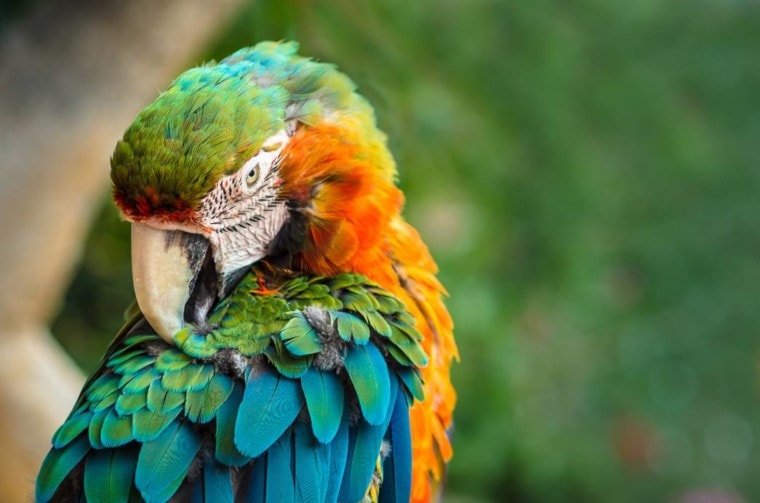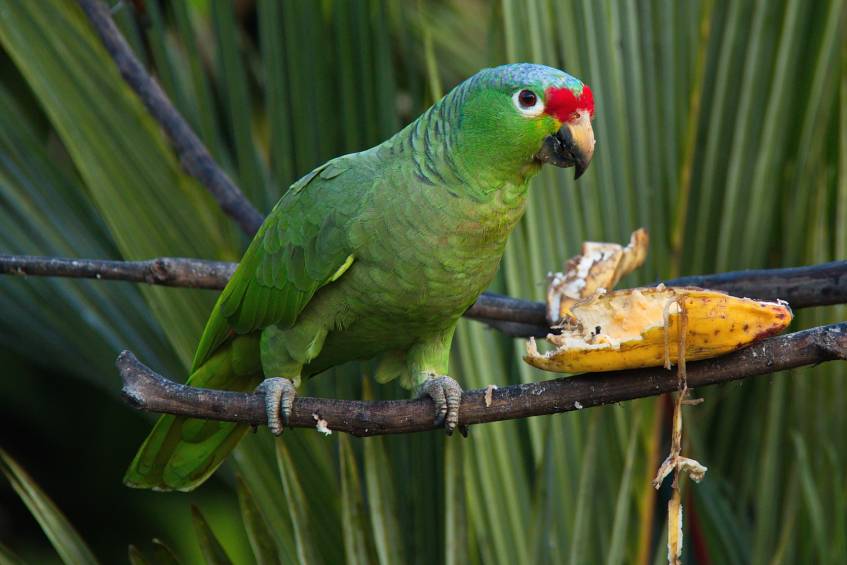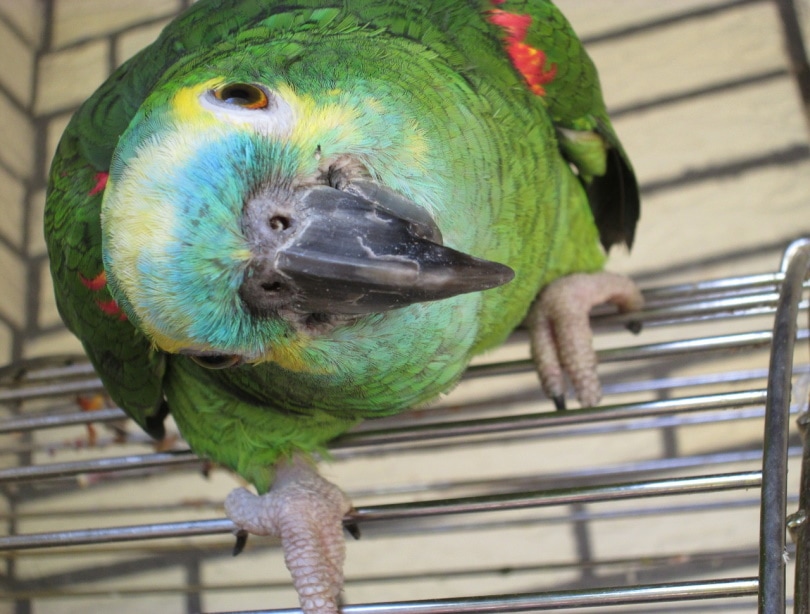
One of the most common questions that we get about parrots is from concerned owners wondering why their bird bobs its head so frequently and what it’s trying to tell them with this strange action. Some breeds, like the Quaker parrot, seem to bob their heads even more than the others. If you notice your parrot engaging in this behavior and would like to know more about it, keep reading while we list several reasons your bird might engage in this behavior to help you understand your pet better.
The 6 Possible Reasons Your Parrot Is Bobbing Its Head
1. It’s Feeling Aggression
If your parrot is angry or feeling aggressive toward you, another bird, or something else in the room, it may begin bobbing its head. Head bobbing is one of the few defense mechanisms your bird has that will help it look intimidating. It helps make the parrot look a little larger while obscuring its actual size. The bobbing can also help mesmerize a would-be attacker, allowing the parrot to make a getaway.
You will often see aggressive head bobbing when someone new approaches the cage, when a cat or dog is in the room, and when you introduce a new bird to the habitat.
2. It’s Hungry
Baby parrots and several other birds bob their heads as babies to let their mother know they need food. It’s only natural that many birds continue this behavior as they get older, especially in captivity. Caged birds need to let someone know they are hungry instead of collecting food themselves as they do in the wild, and head bobbing is what they already know.

3. It’s Looking for Attention
As we just mentioned, head bobbing as a baby gets parrots food and attention from their mother. It makes sense that this behavior might continue as the bird matures, especially if it continues to successfully get the bird the attention it desires. Head bobbing works especially well with humans because it catches our eye and piques our curiosity.
If you have been busy and haven’t spent as much time with your parrot as you usually do, you will likely notice head bobbing in an attempt to get your attention.
4. Your Parrot Is Bonding
One of the strange ways your parrot might try to bond with you is by caring for you. Parrots will often bob their heads before regurgitating food, which is how they feed each other and their young. It’s best to allow them to do it and thank them with a soft voice. Shooing them away and running off to clean up can signal that you are rejecting the bird. That being said, too much of anything is bad. If your parrot is regularly regurgitating on you, that’s a sign that your parrot is getting too close to you, which is not good.
Birds that are overly bonded can become sexually frustrated, and they may also attempt to block other birds and even humans from interacting with you. It’s important that you only ever pet the head of your parrot, so you do not send any mixed signals, and make sure your pet gets at least 9 hours of sleep in total darkness because longer days will signal that it is mating season.

5. It’s Excited
Parrots are somewhat limited on how they can express themselves, and just as head bobbing can mean it’s angry, it can also be a sign that it is happy to see you. Happy birds will usually accompany the head bobbing with plenty of friendly chatter and whistles, and they may even flap their wings a little more and tend to hop from perch to perch.
6. It’s Dancing
Many owners have observed their parrots reacting to the music they play in the home. In many cases, the bird will bob its head to the song’s beat and may also flap its wings and swing its body. One study by Dr. Patel, who studied a famous dancing parrot named Snowball, determined that while the bird didn’t always bop its head in perfect time with the music, it would move faster and slower based on the tempo of the song. This proved that the bird was dancing to the music and not just mimicking a person’s movements.
The study also found that birds like some songs better than others, so it might be worth your time to explore your parrot’s musical tastes as each bird is different, according to a study by the University of Lincoln. This study suggests that most birds like classical music and dislike dance music, but each will have a different favorite song and type of music they enjoy most.

Other Ways Your Parrot Might Try to Get Your Attention
Hair Pulling
If your parrot is close enough and feels like you are not giving it enough attention, it may begin to pull your hair. If it’s out of the cage it might even do so as it flies by, which can be painful.
Wing Flapping
Another technique your pet might try to get your attention is flapping its wings. Flapping wings will quickly catch your eye, they’re hard to ignore. Your bird may quickly catch on to the attention it gets and start using this technique regularly to get the attention it craves.
Screeching
If you are not visible and your bird is seeking your attention, it may resort to making a loud screeching sound. This noise can be quite loud, and it is one of the main reasons that inexperienced owners take their parrots to the shelter. It also may be too loud for your neighbors.
Final Thoughts
To learn the real reason your parrot is bobbing its head, you will need to watch it for a while to learn more about its moods. In most cases, your bird is either happy to see you and is bobbing its head in excitement, or it’s angry about something in the room and is attempting to look intimidating. It can also be one of the other reasons we listed, but those are not nearly as common, except for maybe the dancing. No matter the reason, by watching your bird and paying attention to when it bobs the head, you’ll likely get down to the root cause.
We hope you have enjoyed reading over this list and learned something new about your pet. If we helped you understand your bird better, please share this guide to why parrots bob their heads on Facebook and Twitter.
Featured Image Credit by Frank Taillez, Shutterstock







